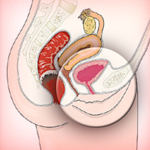Transvaginal Mesh Complications Lead To A Growing Number Of Lawsuits
 Problems from transvaginal mesh include infection, pain, organ perforation, bleeding, neuropathy, inflammation, and abscesses. Over time, transvaginal mesh systems may become imbedded in surrounding tissue, leading to infection and additional surgeries.
Problems from transvaginal mesh include infection, pain, organ perforation, bleeding, neuropathy, inflammation, and abscesses. Over time, transvaginal mesh systems may become imbedded in surrounding tissue, leading to infection and additional surgeries.
The number of lawsuits filed in the U.S. District Court, Southern District of West Virginia is on the rise as more women attempt to obtain compensation for losses related to sometimes devastating complications.
Four of five MDLs have been centralized in West Virginia
Kentucky residents Melissa G. Wooten and John Wooten are some of the more recent plaintiffs to have filed transvaginal mesh lawsuits after Melissa experienced painful side effects after being implanted with a pelvic mesh device. Transvaginal mesh systems are designed to alleviate symptoms related to pelvic organ prolapse (POP) and stress urinary incontinence (SUI). POP occurs when a woman’s pelvic floor weakens. This can lead to a shifting of and protrusion of organs through the vagina. SUI causes urine leakage and is often a sign of other medical problems. These systems are synthetic. They often act as nets, securing the organs.
When failure of the synthetic device occurs, patients sometimes experience recurrence of pelvic organ prolapse after vaginal mesh surgery.
The prevalence of pelvic mesh lawsuits has led to the creation of five multidistrict litigations (MDL), with the possible addition of a sixth. MDLs may be created when several plaintiffs have similar complaints against a common defendant.
Ethicon is just one defendant named in these complaints following failure of pelvic mesh. Four of the five MDLs have been centralized in the Southern District of West Virginia. Currently, no vaginal mesh class action lawsuit has been created.
A plaintiff in a new lawsuit experiences many problems following transvaginal mesh implantation
Wooten vs Ethicon was transferred from the U.S. District Court in the Eastern District of Kentucky to the U.S. District Court, Southern District of West Virginia on July 31, 2012. Judge Joseph R. Goodwin is overseeing the transvaginal mesh litigation filed with the U.S. District Court, Southern District of West Virginia.
Wooten received an Ethicon transvaginal mesh device on June 15, 2007. Shortly after, she experienced transvaginal mesh issues including bowel problems, bleeding, infections, pain and urinary problems.
Like the hundreds of others that have filed transvaginal mesh lawsuits, Wooten claims Ethicon not only developed a faulty device, but knew about the devices flaws and intentionally failed to warn the public about the risk of receiving an Ethicon mesh implant.
[SmartLink vaginalmeshlawsuit]

